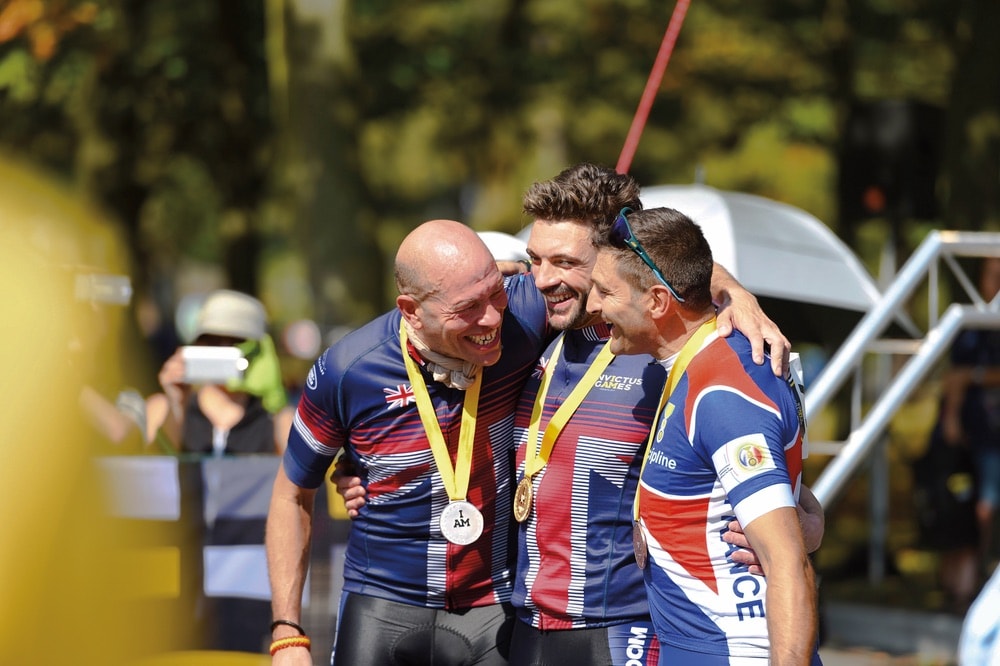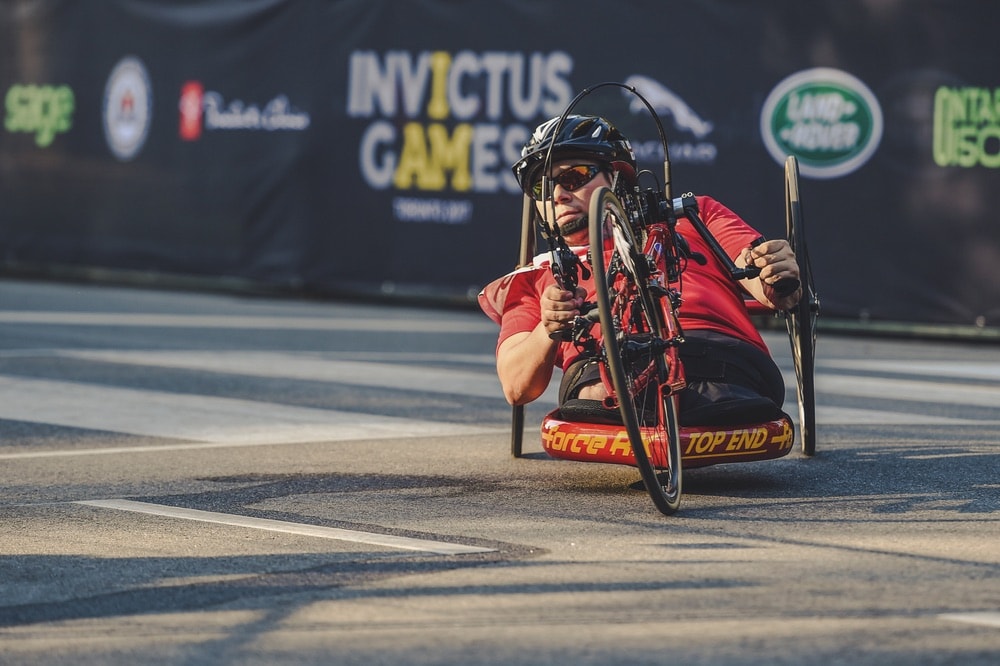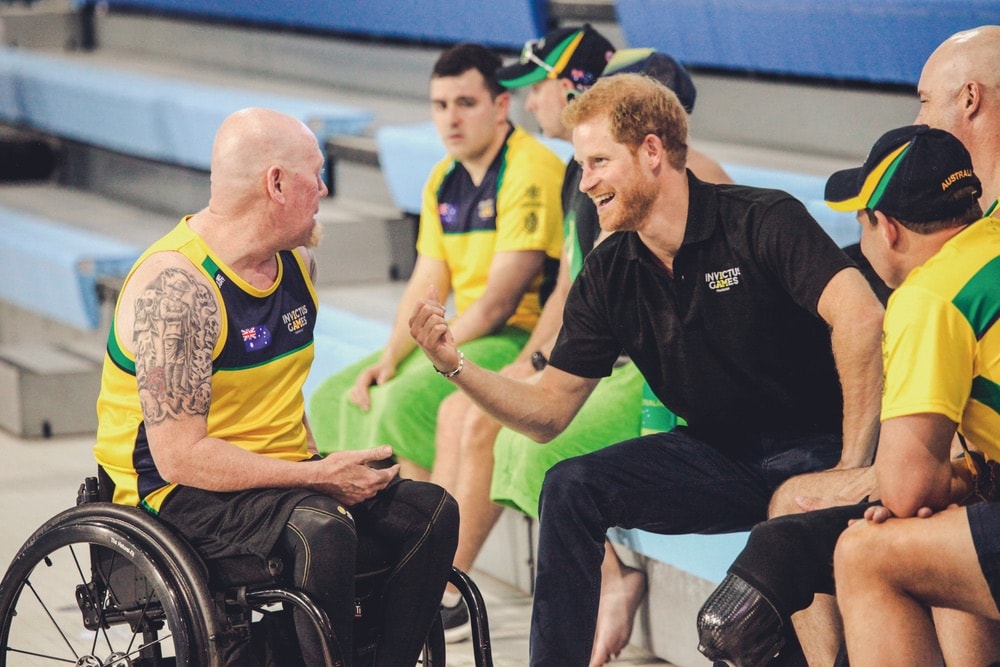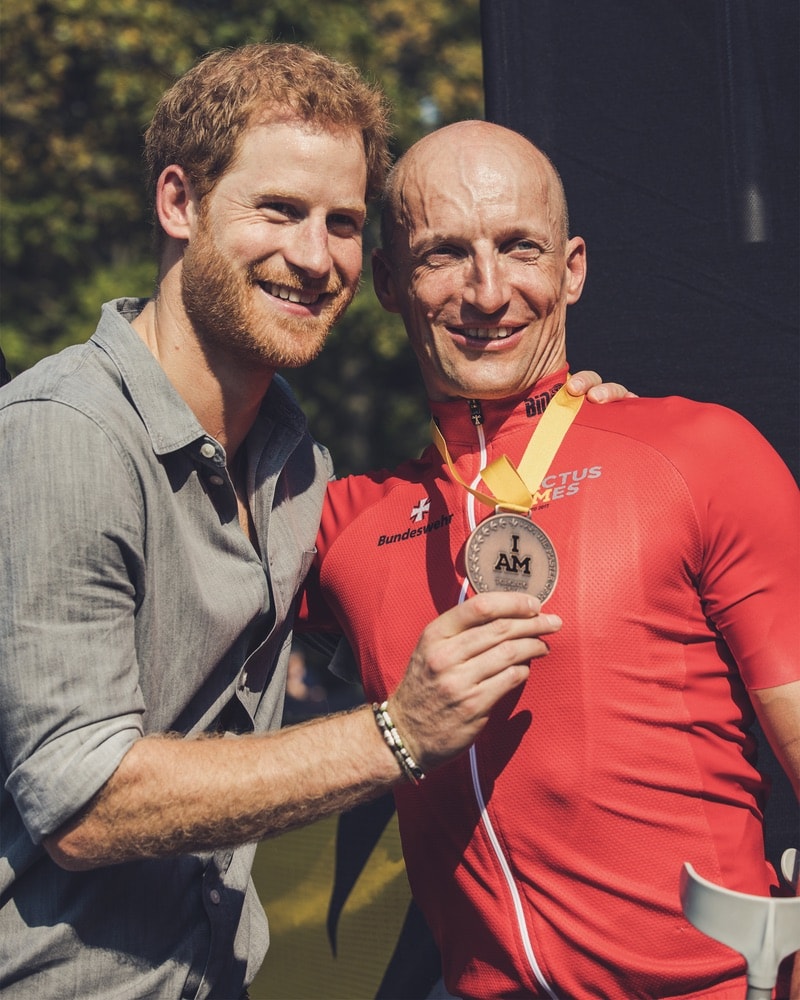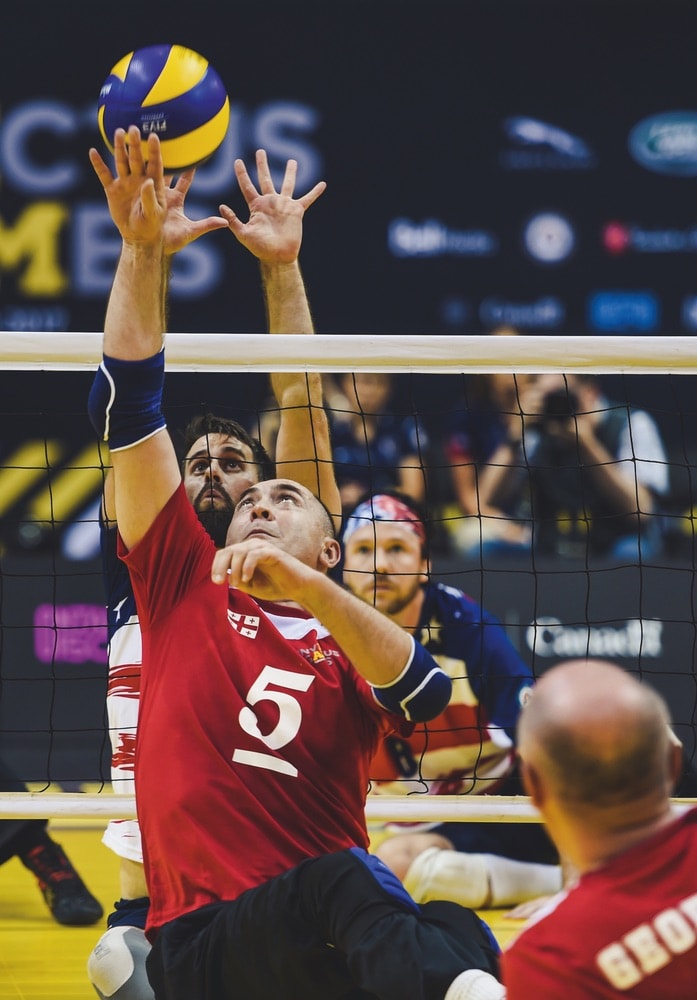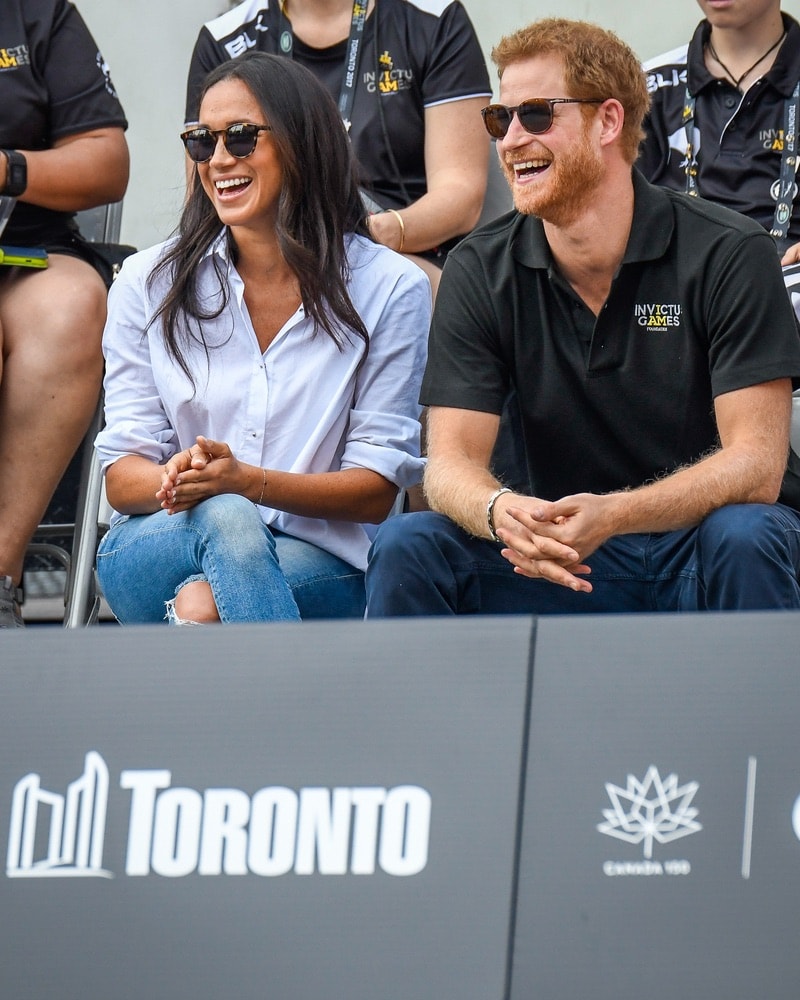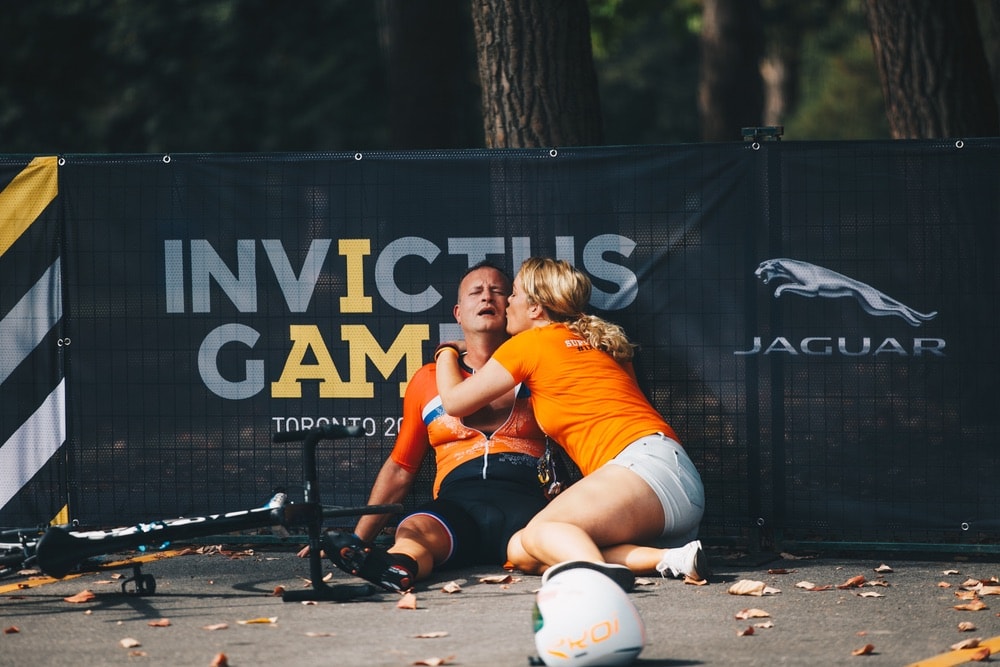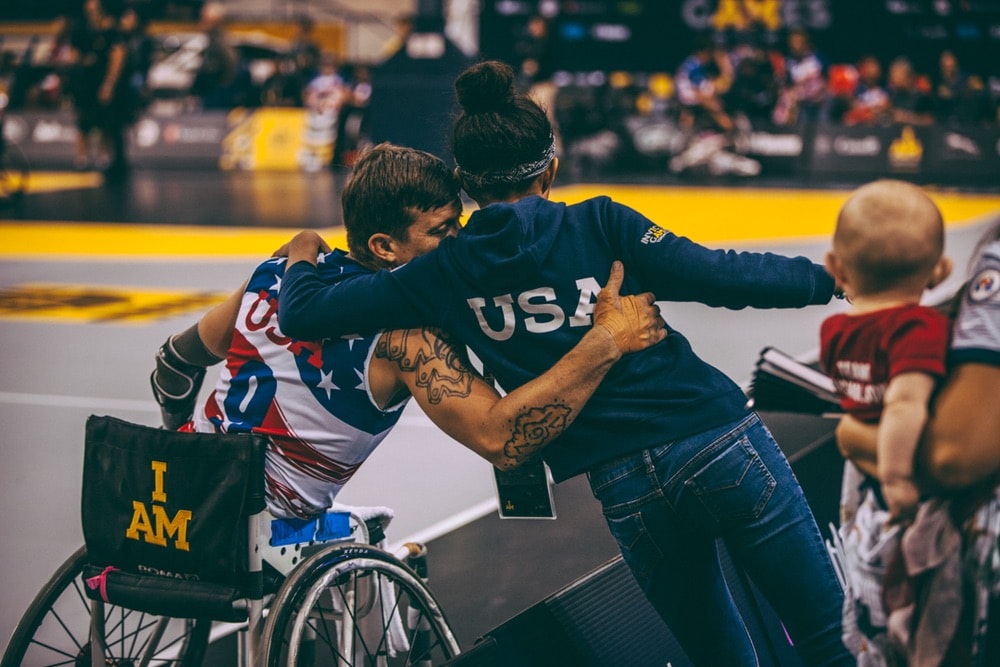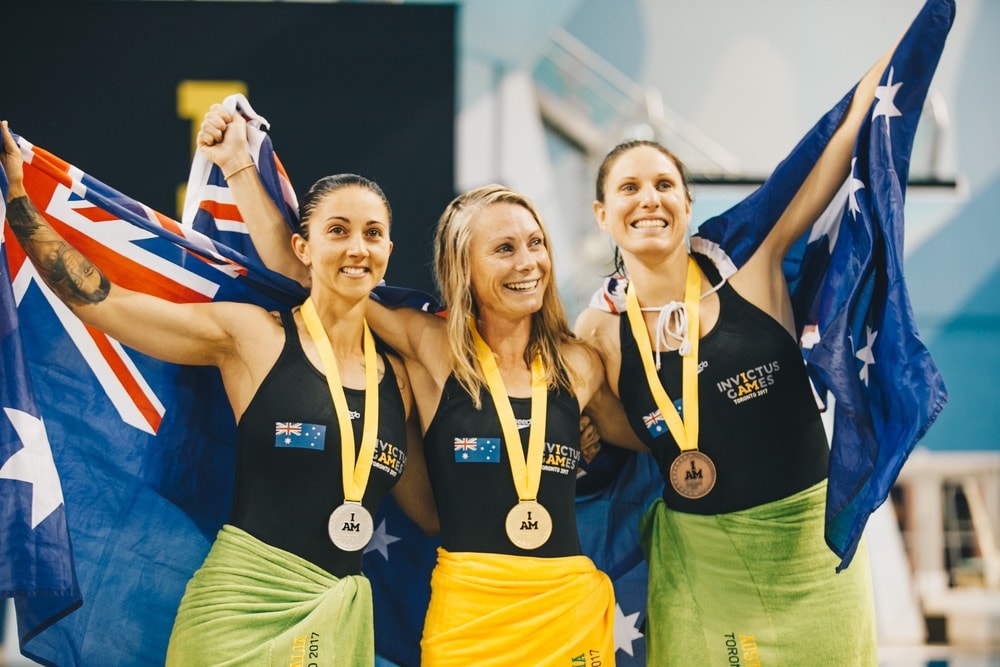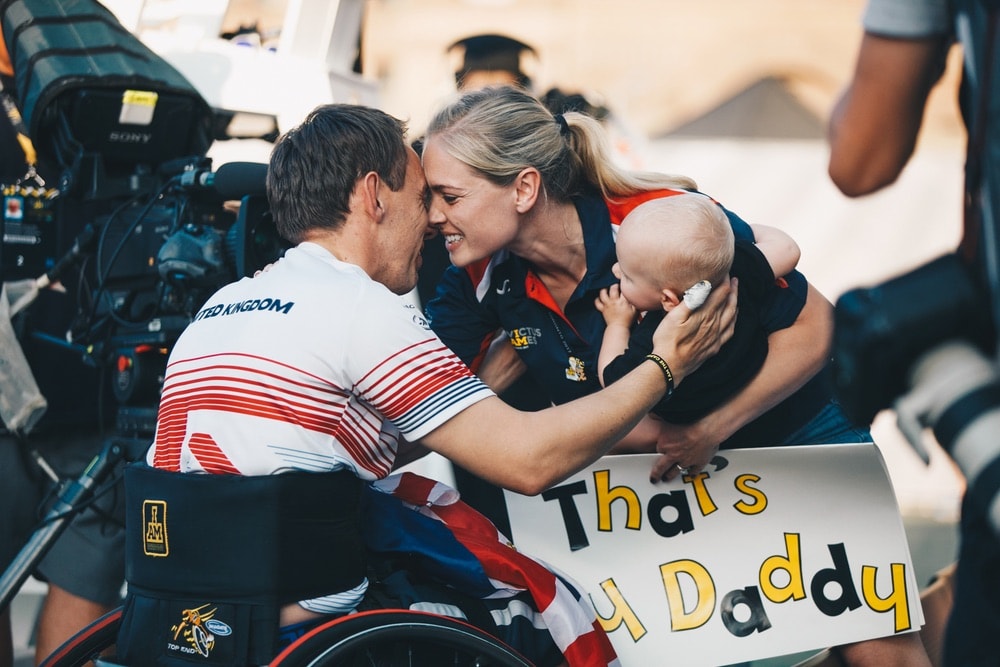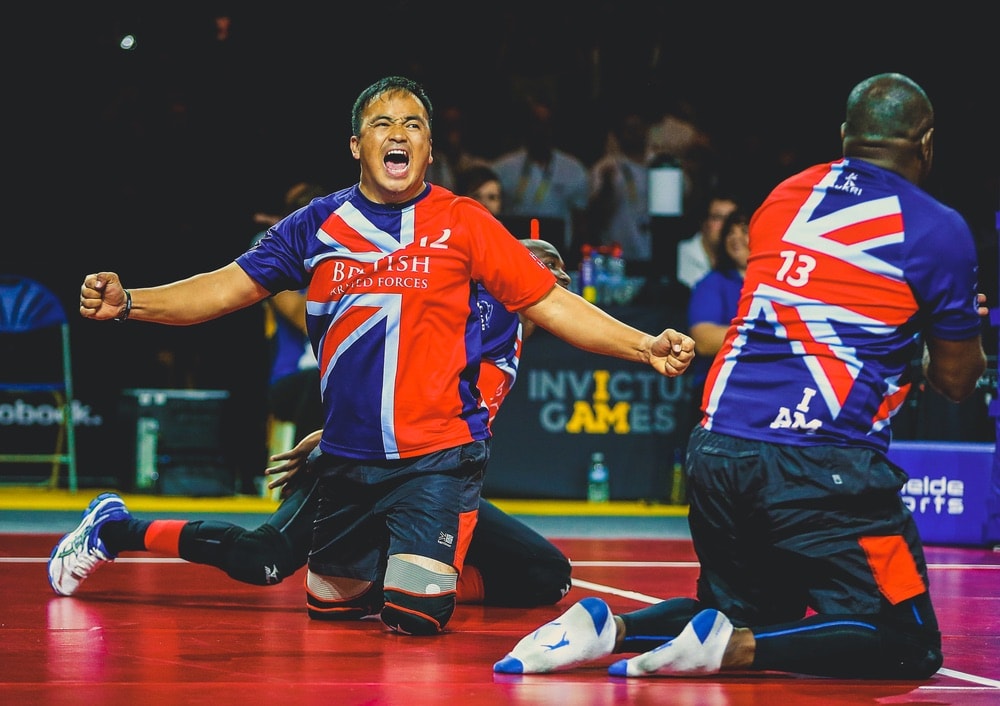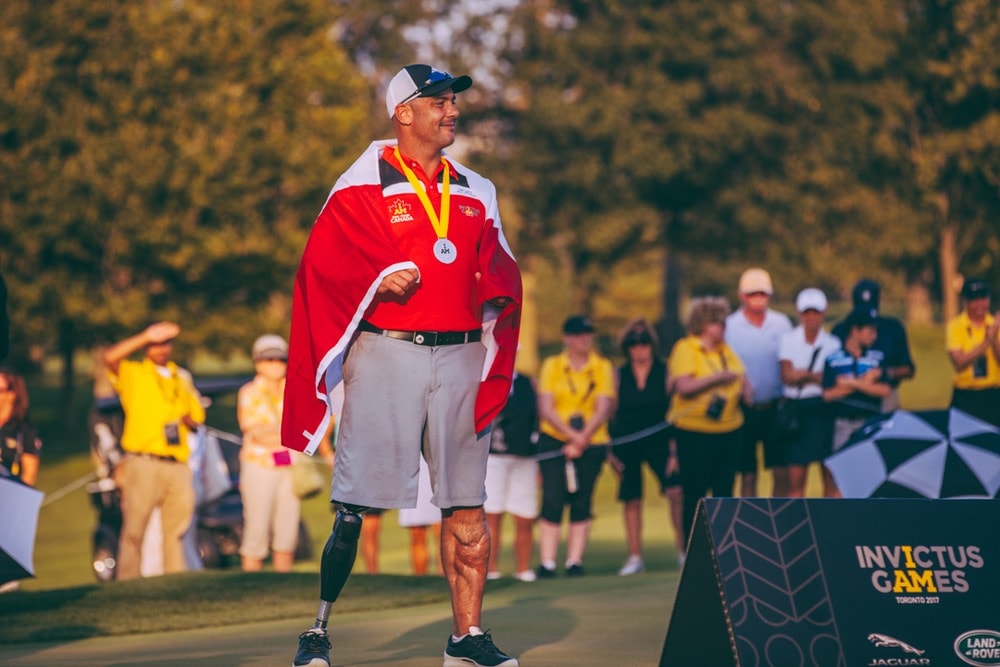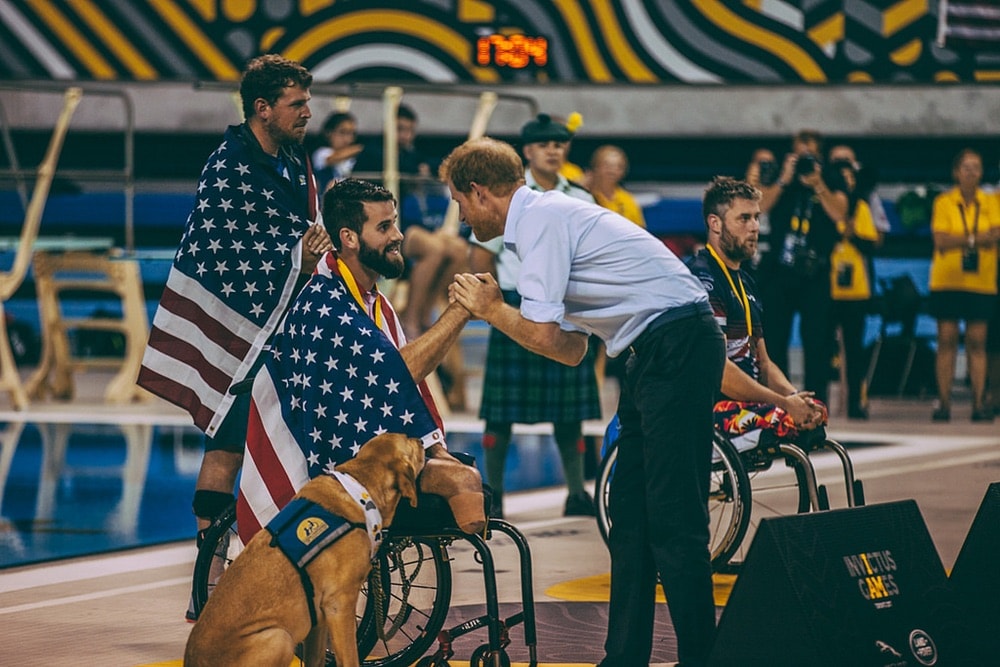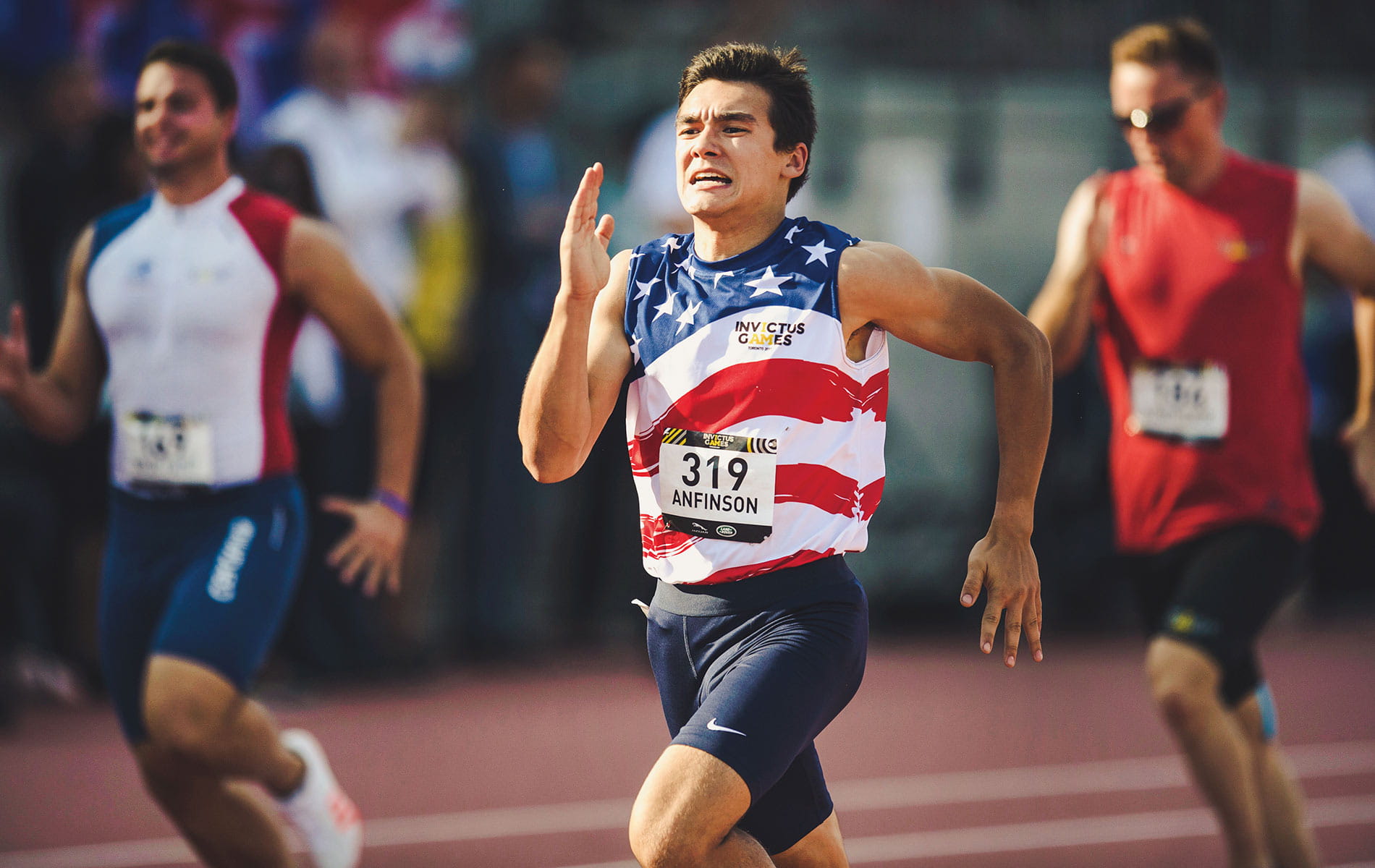
vie-magazine-invictus-games-2017-hero-min
Team USA member Marine Corps veteran Lance Corporal Robert Anfinson competes in a sprinting event during the Invictus Games in Toronto on September 24, 2017. Photo by EJ Hersom/Department of Defense
Invictus
Masters of Fate
By Ilona Kauremszky | Photography courtesy of Invictus Toronto
Look no further than the dark confines of a basement or an isolated room. This is where many wounded veterans who survived the wrath of war retreat from everyday life. Family members are sometimes unable to cope while their loved one seeks refuge from horror and personal trauma. The alienation can be staggering.
For one military veteran who survived two deployments to Afghanistan, the devastating blow was witnessing the coffin of a deceased Danish comrade board his aircraft and seeing other wounded soldiers, those in induced comas, and another clutching a test tube of shrapnel that had been extracted from his head.
“The way I viewed service and sacrifice changed forever. And the direction of my life changed with it,” says a humble Prince Harry, reflecting on that life-changing moment, which he experienced on his first tour to Afghanistan in 2008. He made another tour in 2012; his ten-year military career ended in 2015.
While the Prince of Wales, 33, survived the war without harm, many other veterans return home with debilitating injuries, both psychological and physical.
The Invictus Games is a passion project for Prince Harry, the patron founder of this international Paralympic sporting event for current and veteran members of the forces. The games were inspired by a Wounded Warriors competition he attended for U.S. military veterans in Colorado in 2013. A year later, the royal, who is fifth in line to the throne, started this philanthropic project to shed light on veterans who have survived war and conflict.
- Cycling gold and silver were awarded to the UK and bronze to France. Left to right: Wayne Harrod, Karl Allen-Dobson, and Henri Rebujent
- A member of Team Germany competes in the cycling time trial with a recumbent bike.
- Prince Harry talking with the Australian wheelchair basketball team
This past September, Toronto hosted the Invictus Games 2017, the largest international competition in the world featuring ill and injured soldiers. The eight-day blockbuster event packed the city’s finest venues, bringing out scores of spectators—among them celebrities and politicians who supported the troops.
“I knew that it was my responsibility to use the great platform that I have to help the world understand and be inspired by the spirit of those who wear the uniform,” Harry said on the opening day of the games. “In a world where so many have reasons to feel cynical and apathetic, I wanted to find a way for veterans to be a beacon of light and show us all that we have a role to play, that we all win when we respect our friends, neighbors, and communities.”
Invictus, Latin for “unconquerable” or “undefeated,” is also the title of a poem written in 1875 by English poet William Ernest Henley. The poem’s final two lines say so much: “I am the master of my fate: I am the captain of my soul.” Nearly 150 years later, Hensley’s prophetic poem strongly resonates with Prince Harry’s passion for inspiring recovery through sports and drawing awareness to the physical and psychological injuries suffered by service members.
“And now you are here on the world stage, flags on your chests, representing your countries again and supporting your teammates. You are all winners.”
Toronto’s hockey shrine, the Air Canada Centre, became center stage for the Invictus Games 2017 opening and closing ceremonies. A constant stream of standing ovations flowed throughout opening night. Comedian Mike Myers, a citizen of Canada, the United Kingdom, and the United States whose parents served in the British military during World War II, was a Games Ambassador this year. He candidly admitted, “In my house, the number one lesson was those that served our country deserve our utmost respect, admiration, and gratitude, and so do the families.” Later, addressing the athletes, he said, “You have achieved what once seemed impossible. Never give in. Never give up. Never, never, never.”
Prince Harry, in turn, reflected on the personal journey of the competitors: “You have all come such a long way. Some of you have cheated death and come back stronger than before. Some of you have overcome emotional challenges that, until very recent years, would have seen you written off and ignored. And now you are here on the world stage, flags on your chests, representing your countries again and supporting your teammates. You are all winners.”
- Prince Harry congratulates bronze medalist Thomas Stuber of Germany after Stuber competed in the cycling time trial.
- Team USA and Team Georgia compete in the sitting volleyball tournament.
- Prince Harry and Meghan Markle attend a Wheelchair Tennis match during the Invictus Games
His Royal Highness emphatically recognized the absence of the unlucky ones, saying, “Don’t forget about our friends who didn’t come home from the battlefield. Don’t forget those at home who still need our support. And don’t forget that you are proving to the world that anything is possible.”
Over eight days, vets showcased their strength. Optimism fueled the city. Families bonded. Crowds cheered as over 550 competitors from seventeen countries descended on the streets of Toronto to compete in twelve sports, including track and field, swimming, and, in a first for the Invictus Games, golf. There were tears of joy and even more hugs. By all accounts, event organizers announced the third Invictus Games in Toronto to have been the best.
For Sharona Young, 35, a medically retired Navy chief petty officer from Orlando who served fourteen years as a yeoman, the Invictus Games have provided her with tremendous support. “I’m blown away by how supportive everyone has been and all of the encouragement I receive from all of the other athletes,” she said from Nathan Phillips Square after playing a wheelchair tennis tournament.
“Don’t be afraid of the challenges or the unknown. Just trust yourself and have fun. Focus on what you can do, what skills you have, and go from there.”
In 2013, Young was diagnosed with multiple sclerosis. She encourages service members with disabilities to give adaptive sports a try. “Don’t be afraid of the challenges or the unknown. Just trust yourself and have fun. Focus on what you can do, what skills you have, and go from there.”
Young’s support system is her caregiver and sister, Nakesha, and her eleven-year-old daughter, Taylor. “They mean the world to me; they are my everything,” Young says. “I wouldn’t be here without them, without their help and encouragement and just the support I get on a day-to-day basis from them.”
For Mike Toth, 51, a retired sergeant major and veteran of the Special Forces, sports like cycling and rowing are his lifesavers. The Tampa resident battles lower back and neck pain and PTSD, but took up cycling a few years ago and says, “Cycling has given me something positive to focus on and helps keep me physically and mentally fit.” Support of family and friends has been huge in his recovery process too; Toth had six family members cheering him on at the games this year. His wife, Michelle, considers the Invictus Games an important experience in helping veterans. “Mike, like many other warriors, has been through so many hardships, both mentally and physically,” says Michelle. “He is a true inspiration to us as he is able to overcome those hardships through his physical training and daily living.”
At every Invictus venue in Toronto, crowds responded with cheering and thunderous applause. It’s that extra push of support that drives these athletes over the finish line. And it’s that extra princely touch from Prince Harry sharing candid moments with athletes and family members that have many calling him “the People’s Prince.”
Through a viral online video, the world saw Captain Dave Henson from the U.K., whose adorable daughter stole the show at the swimming competition when she helped herself to some of the Prince’s popcorn. Henson, a Paralympic medal winner and former Invictus Games competitor, is a friend of Prince Harry’s. He shares the same birthday (September 15, 1984) and also served in Afghanistan. In 2011, Henson stepped on an IED and lost both of his legs.
“We had all demonstrated a vigor for life and a desire to push through even the most difficult of circumstances. We don’t give up.”
“Ten months after losing my legs, I got my first set of running legs, and that was it; I was up,” Henson said in a promotional video for the Invictus Games 2014 in London. “I got stronger and stronger. My mobility got better and better. We had all demonstrated a vigor for life and a desire to push through even the most difficult of circumstances. We don’t give up.”
Prince Harry continues to inspire, and his strong passion and compassion toward causes he believes in are powerfully evident. At the second Invictus Games, held in Orlando in 2016, he told Robin Roberts in an ABC interview how never before has the number of amputees surviving traumatic injuries been witnessed to this extent. “Some of these guys should be dead. I’m now watching someone who should be dead run the hundred meters. You want a definition of inspiration, that’s probably it.”
In April, Prince Harry helped launch Heads Together, a mental health campaign whose goal is to end the stigma surrounding mental health problems and encourage people to start having conversations about these issues. Speaking about loss and grief in the video campaign, Prince Harry reveals, “We’ve never really talked about losing a mum at such a young age.”
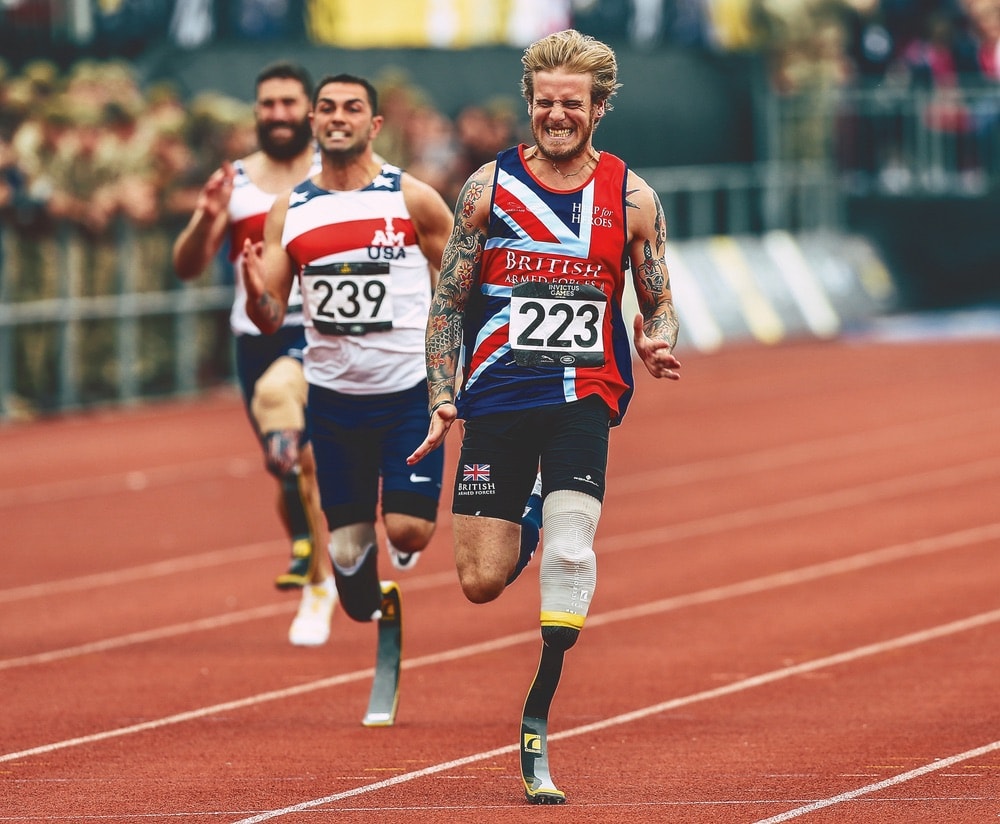
Runners compete in the men’s IT1 100-meter dash
On that tragic day twenty years ago, on full display in front of a worldwide audience, there was a twelve-year-old grieving son. Was there a profound effect in watching his mother’s coffin without ever shedding a tear in public? “People deal with grief in different ways. My way was basically shutting it out,” he openly explains in the ITV documentary, Diana, Our Mother: Her Life and Legacy, which was broadcast on the twentieth anniversary of her death.
The late Princess Diana, regarded as the People’s Princess, devoted her life to family and charities. It was the sick, the poor, and the downtrodden who spoke to her. Just months before her sudden death, Diana took up the cause of banning land mines. She showed heartfelt compassion when speaking with victims and a steely resolve while walking through an active land-mine field in Angola to raise awareness for land-mine clearance.
Now Prince Harry has picked up his mother’s baton, representing the wounded, and is carrying it in a new race as her legacy of compassion continues unbroken. We saw him at the Invictus basketball, volleyball, and tennis courts. We watched him cheering athletes on the golf course and at track level. We saw his embraces at cycling, rugby, swimming, and archery.
“It’s just amazing how much everyone appreciates what he’s done,” noted Toth on the Prince’s contributions.
Harry was everywhere, and so was love. His mother would be proud.
— V —
Ilona Kauremszky is an award-winning travel journalist who has worked with leading publishers worldwide including Fodor’s and Michelin and publications such as the Globe and Mail, National Post, Toronto Star, Boston Herald, Canadian Geographic, ELLE, and more. When not writing, she collaborates on the digital TV channel mycompasstv.
Share This Story!
KEEP UP WITH THE LATEST STORIES FROM VIE



